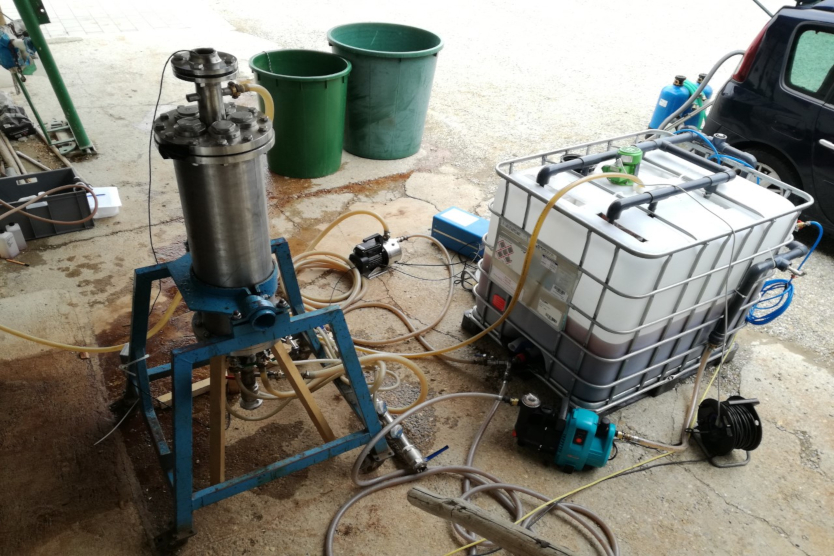
Testing the impermeability of the filter cartridges with a suspension of fine grained adsorption material
© Joy Iannotta (Hydroisotop GmbH)
As an energy source geothermal energy has the advantage of providing an almost unlimited supply of energy and at the same time high annual runtimes. Even if the geological conditions in Germany are not ideal, the industry is nevertheless on the up. Currently, more than 37 deep geothermal plants (with drilling depths of more than 400 metres) are in operation, a further 30 are already in the planning stage. In deep geothermal energy in Germany, thermal water with a production volume of up to 150 l/s and a temperature of up to 150°C is produced. Internationally, more geologically active regions, such as Japan, Mexico or Indonesia offer even greater potential, which could be exploited more efficiently with the use of German technology.
For the filtration of the thermal water candle filters are used that collect particles over 100 μm and regularly backwash them. However, iron sulphates and calcites dissolved in the water quickly clog the filters with the result that they can only operate for 12-36 hours without maintenance. This prevents the uninterrupted operation of deep geothermal plants and can lead to financial losses.
This is where the HYDROGEOFILT project of the Technical University of Munich, Hydroisotop GmbH and the municipal uttility of Munich comes in to develop and test innovative candle filters that can operate long term with low maintenance and low costs. Findings from the filtration of drinking water and waste water are to be adapted to the extreme conditions (temperatures and pressures) of geothermal energy and tested. The new filters will then be able to operate maintenance-free for longer periods of time and stabilise the entire system.
The project is being funded by the Federal Ministry for Economic Affairs and Energy: the filters will be modelled, tested and optimised in terms of their overall efficiency by mid-2019.


